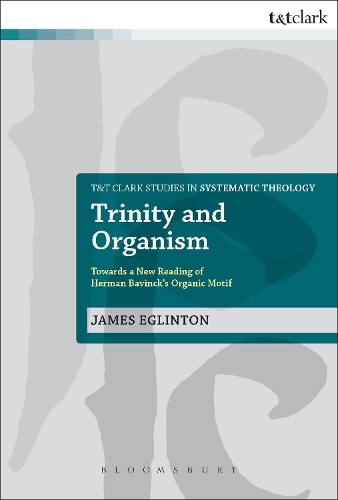
Trinity and Organism: Towards a New Reading of Herman Bavinck's Organic Motif
(Paperback)
Available Formats
Publishing Details
Trinity and Organism: Towards a New Reading of Herman Bavinck's Organic Motif
By (Author) Dr James Eglinton
Bloomsbury Publishing PLC
T.& T.Clark Ltd
28th September 2013
United Kingdom
Classifications
Professional and Scholarly
Non Fiction
Theology
Calvinist, Reformed and Presbyterian Churches
230.42092
Physical Properties
Paperback
240
Width 154mm, Height 232mm, Spine 18mm
360g
Description
This book explores the organic motif found throughout the writings of the Dutch Calvinist theologian Herman Bavinck (1854-1921). Noting that Bavinck uses this motif at key points in the most important loci of theology; Christology, general and special revelation, ecclesiology and so forth; it seems that one cannot read him carefully without particular attention to his motif of choice: the organic. By examining the sense in which Bavinck views all of reality as a beautiful balance of unity-in-diversity, James Eglinton draws the reader to Bavinck's constant concern for the doctrine of God as Trinity. If God is the Father, the Son and the Holy Spirit, Bavinck argues, the creation must be more akin to an organism than a machine. Trinity and organism are thus closely linked concepts. Eglinton critiques and rejects the 'two Bavincks' (one orthodox and the other modern) hermeneutic so commonplace in discussions of Bavinck's theology. Instead, this book argues for a reunited Herman Bavinck as a figure committed to the participation of historic orthodox theology in the modern world.
Reviews
'Herman Bavinck must rank as one of the most creative modern interpreters of the Calvinist tradition. James Eglinton matches this creative capacity with a bold and persuasive new reading of Bavinck's doctrine of God, showing how a critical deployment of nineteenth century organic thought enabled the theologian to produce a Trinitarian vision of the unity in particularity of all creation.' - Professor George Newlands, University of Glasgow, UK -- George Newlands
Author Bio
Dr James Eglinton is a Postdoctoral Research Fellow at Kampen Theological University in the Netherlands. His current postdoctoral research concerns the relationship of Scottish and Dutch Calvinism.
